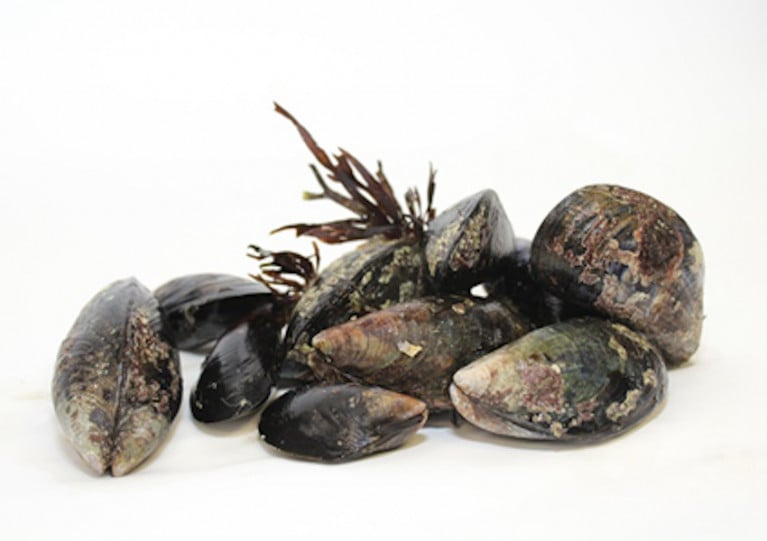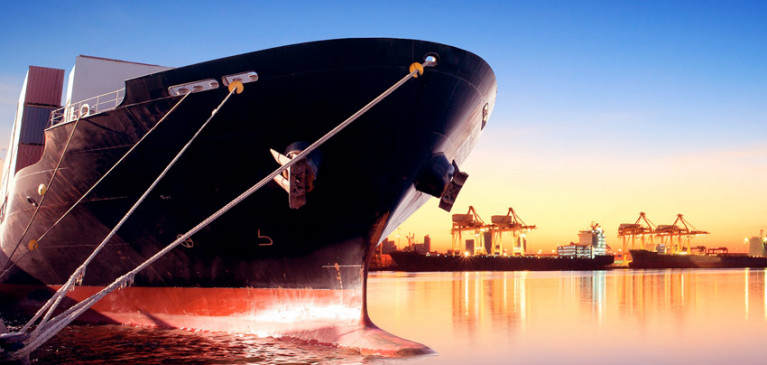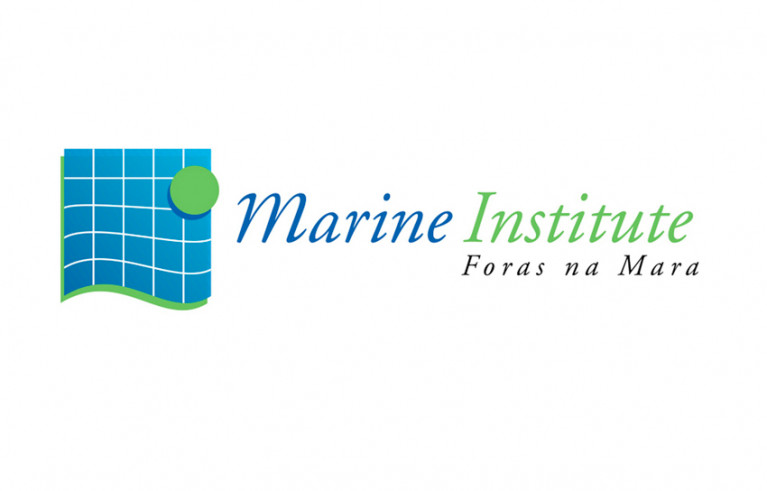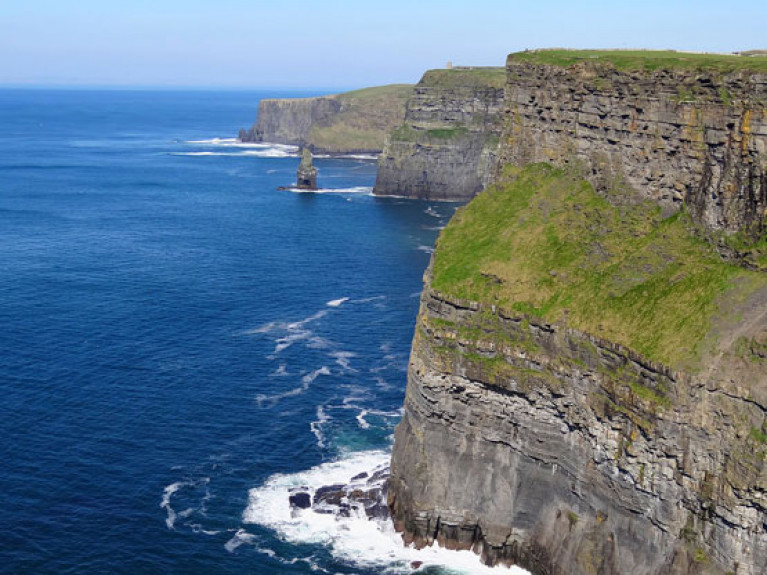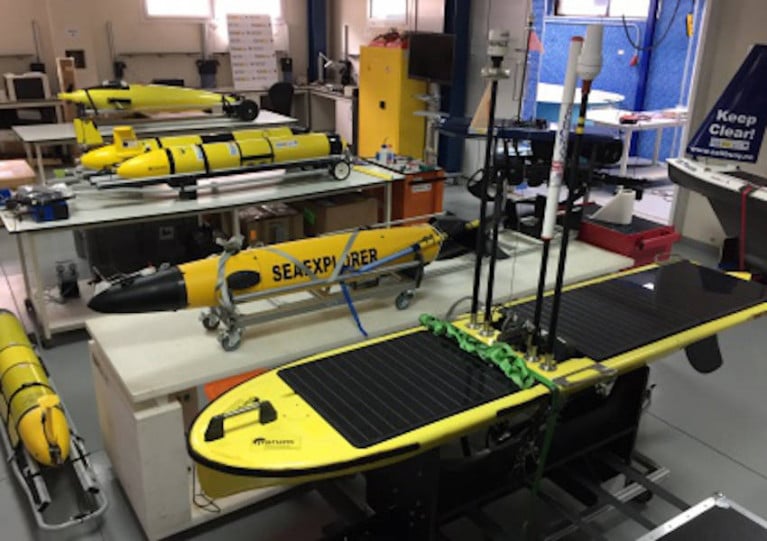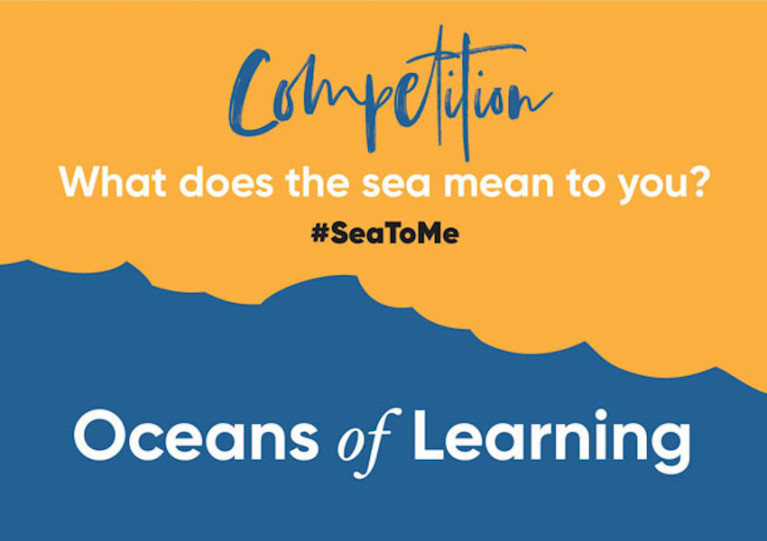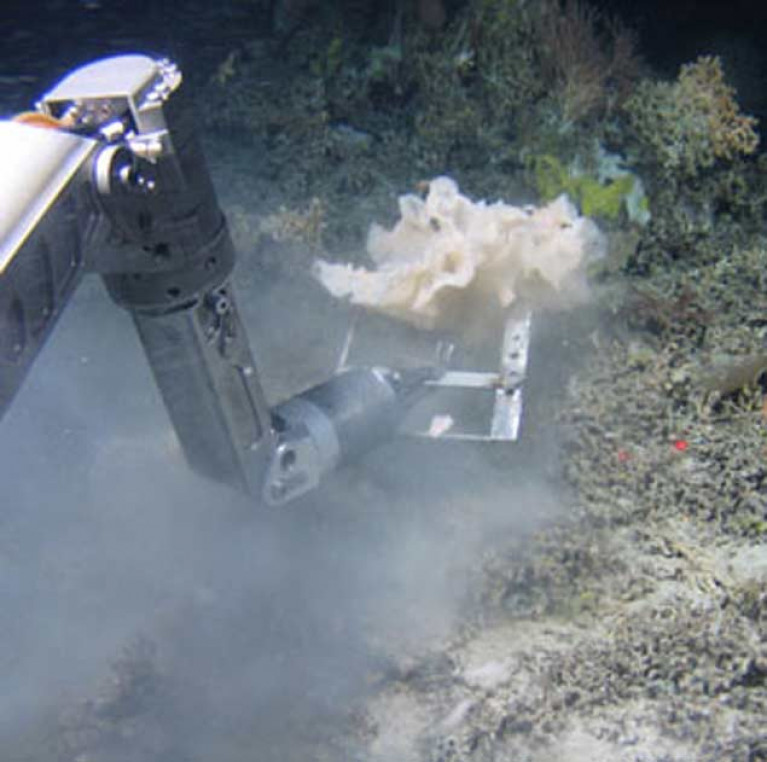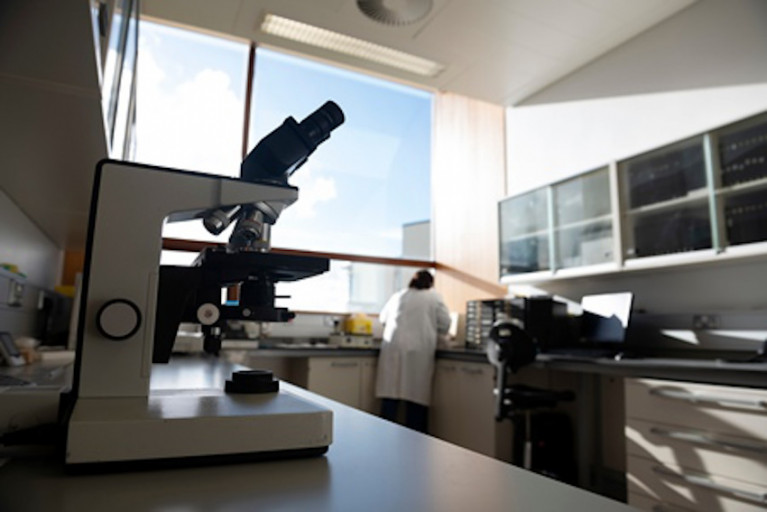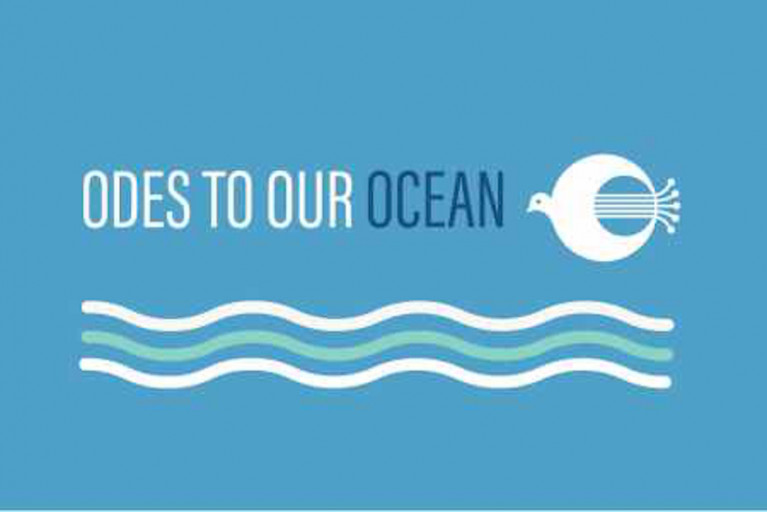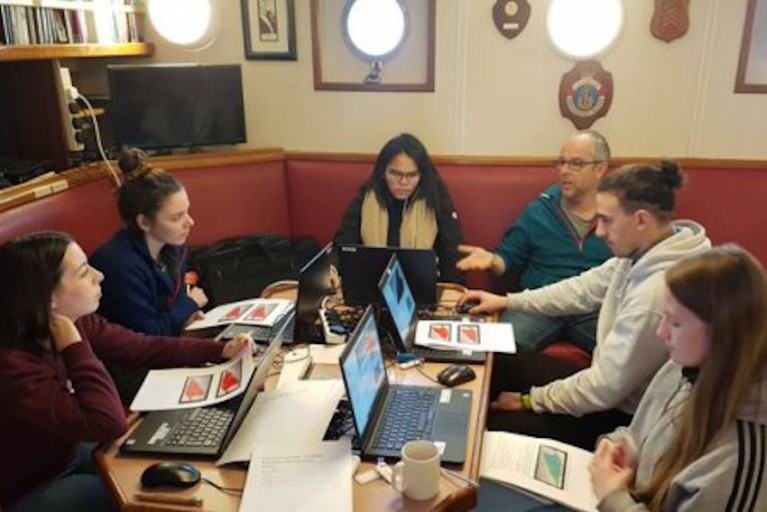Displaying items by tag: Marine Institute
Shellfish Pickers Warned Over Toxicity Levels
The public has been warned against against recreational gathering of shellfish such as mussels, clams, cockles or oysters over increased levels of illness-causing toxins.
Routine shellfish monitoring by the Marine Institute along South West and West coasts detected increased levels of these naturally occurring compounds in recent weeks.
Such levels are common at this time of the year and are due to microscopic phytoplankton species blooming in coastal waters during the warmer and longer days of summer, the institute says.
Toxins they produce can accumulate in filter feeding shellfish and can make people ill, even if the shellfish is cooked, it adds.
The specific toxins of concern may cause diarrheic shellfish poisoning (DSP), a temporary gastroenteritis-like illness, or the less common paralytic shellfish poisoning (PSP), which can result in serious illness.
Commercial shellfish businesses in affected areas have been closed temporary in the interest of public safety — though safe alternatives are available from other parts of the country through approved suppliers.
Dave Clarke is manager of the Marine Institute’s shellfish safety programme.
“In Ireland we operate a world class-shellfish safety programme to ensure food safety prior to harvesting,” he says.
“This sophisticated monitoring programme is designed to protect the consumer and ensure the highest quality of Irish shellfish on international and home markets.
“This summer, so far, has seen high levels of toxic phytoplankton and toxins in shellfish requiring temporary closures until the problem abates. It is stressed, however, that these only affect shellfish. Swimming and other coastal recreations are not affected.
“We would strongly advise the public to avoid picking their own shellfish along the shoreline, and to only source shellfish from an approved retail establishment.”
As an island nation, Ireland is dependent on ports and shipping services to transport goods, and 90% of our trade is moved though Irish ports.
Shipping and maritime transport services make a significant contribution to Ireland’s ocean economy, with the sector generating €2.3 billion in turnover and employing over 5,000 people in 2018.
The importance of Ireland’s ports and shipping services is the focus of this week’s Oceans of Learning series, with resources from the Marine Institute and Irish Maritime Development Office (IMDO).
Ireland’s maritime industry continues to grow and progress each year with Irish ports and shipping companies making significant investments.
The ports sector in Ireland is currently undergoing a number of expansions and developments — with Dublin Port’s Alexandra Basin development, the development of Ringaskiddy in Cork by Port of Cork and the development of Shannon Foynes Port.
Along with these major investments, shipping companies are also investing heavily in new tonnage, with Irish Ferries, CLdN and Stena leading new build programmes.
IMDO director Liam Lacey said: “The Irish maritime industry can look to the future with confidence. It has shown itself to be resilient and agile in responding to challenges.
“Over the past decade, it has had to respond to the challenges of the financial crisis of 2008, the uncertainty surrounding Brexit and recent challenges. Ireland’s maritime sector has continued to underpin our economy by maintaining vital shipping links for both trade and tourism.”
Oceans of Learning offers downloadable resource such as fact sheets, a quiz and posters on Ireland's shipping sector. To access the resources for this week’s series, visit Port of the Future.
For more information on Oceans of Learning, visit www.marine.ie and follow the Marine Institute on Facebook, Instagram and Twitter.
The Marine Institute is recruiting for a number of temporary roles relating to marine spatial planning and the Marine Strategy Framework Directive (MSFD).
These eight positions include three team leader roles, in environmental data reporting and co-ordination, data services co-ordination, and biogeochemistry; and three scientific and technical officer roles, as data analyst, spatial data analyst and services developer, and in marine biodiversity and foodwebs, respectively.
In addition, there is a competition for a section manager to support marine spatial planning policy and MSP/MSFD co-ordination, and an executive officer (administrative assistant) role to support the MSP and MSFD teams.
All roles form part of the Service Level Agreement with the Department of Housing, Planning & Local Government delivering outputs relating to marine spatial planning, the MSFD and related activities.
The posts are all located in Galway and in place until 31 December 2023. Applications should be submitted no later than 12 noon on Tuesday 30 June. All details on these roles and how to apply are on the Marine Institute website HERE.
In Ireland, 1.9 million people live within 5km of the coast and many communities along the Irish coast depend on industries such as tourism, fishing and aquaculture.
Furthermore, there is now mounting evidence that the ocean plays a key role in the general wellbeing of our coastal communities.
This week’s Oceans of Learning series explores the importance of Ireland’s coastal communities, with resources from the Marine Institute, Commissioners of Irish Lights, Údarás na Gaeltachta, Galway City Museum and the Explorers Education Programme.
Dr Paul Connolly, chief executive of the Marine Institute, said: “As an island nation, our 7,711 kilometres of coastline is one of our greatest assets.
“Our fishing and aquaculture industries, tourism and marine leisure make a significant contribution to the economic development of Ireland’s coastal regions, and provide employment opportunities for many in our coastal communities.”
One of the key industries contributing to Ireland’s ocean and coastal economies is tourism and leisure. The sector generated a turnover of €1.25 billion in 2018, and provided employment for over 18,000 people — accounting for 57% of all employment in the Irish economy.
Ireland’s scenic coastline, rocky escarpments and beaches attract a large number of overseas visitors every year. In 2018, 76% of overseas tourists visited a coastal area and 61% participated in a marine-related leisure activity. Coastal sightseeing, beach and island visits and walking, running and cycling along the coast are popular activities for overseas visitors.
The Irish coastline is dotted with inlets, piers and harbours used by fishermen every day. Fisheries in Ireland significantly contribute to the economy as a whole and in particular to coastal communities. In 2019, Ireland had over 2,000 registered commercial fishing vessels and the industry provided employment for 3,000 people.
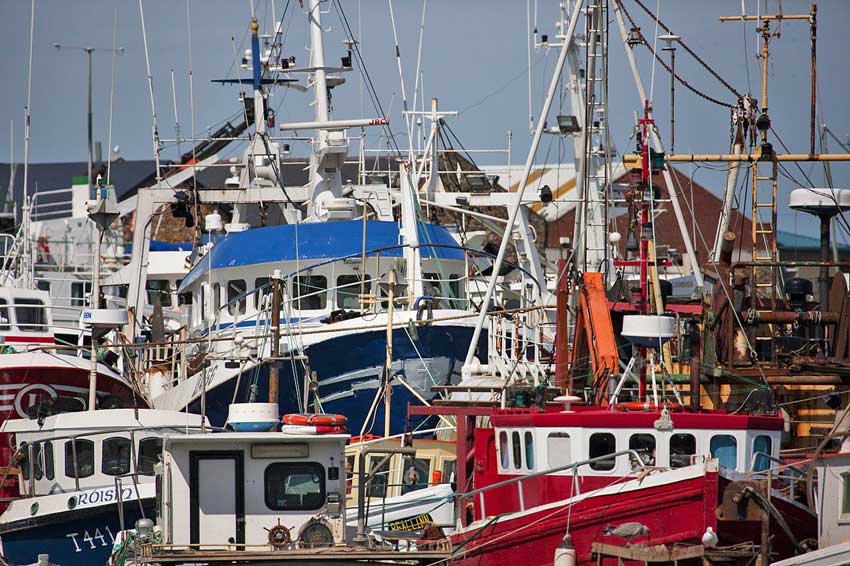 Fishing boats in Howth | Photo: William Murphy/Wikimedia
Fishing boats in Howth | Photo: William Murphy/Wikimedia
Inshore fishing take places in many rural communities with fishermen using small vessels to catch species such as lobsters, crabs, oysters, scallop, razor fish and clams. Inshore fish stocks (up to 10 miles from the Irish coast) are managed nationally and the Marine Institute works closely with Bord Iascaigh Mhara (BIM) on inshore fisheries management.
The seafood industry is also an integral part of Ireland’s rural coastal communities. In 2019, more than 16,000 people were employed directly and indirectly in the seafood industry, with high levels of employment in Ireland’s coastal regions in Donegal, Cork, Galway and Clare. Oysters, salmon and mussels are sustainably farmed around the coast of Ireland.
The aquaculture industry in Ireland produces about 37,000 tonnes annually, and the turnover generated by marine aquaculture in 2018 was estimated at €176 million. Shellfish aquaculture activities are widely distributed across the coast of Ireland, while finfish aquaculture occurs mainly in the west of Ireland.
Seaweed harvesting is a traditional activity in Ireland that also generates income and offers employment in coastal areas. Seaweed harvesting takes place around the coast of Ireland, particularly in counties Galway, Donegal, Sligo, Kerry and Cork.
Climate change impacts pose significant challenges to coastal communities. Such impacts include rising sea levels, coastal erosion, flooding, and an increase in extreme weather events.
Adapting to a changing climate is one of the greatest challenges facing society, governments and decision-makers worldwide. The Marine Institute works with national and international partners to observe and understand how our ocean is changing and to determine how to respond to current and future patterns of change that impact Ireland’s economy and people.
Through the BlueFish Project, a unique project linking art and science, the Marine Institute has also worked with coastal communities in Ireland and Wales on the importance of the ocean to their livelihoods and the impacts of a changing climate.
“As a small island nation, the health of our oceans and the wellbeing of our coastal communities have always been and will continue to be inextricably linked,” said Dr Connolly
The Marine Institute, in collaboration with PLOCAN (Oceanic Platform of the Canary Islands) in Spain, is pleased to announce a call for proposals from academic institutions for a structured four-year PhD scholarship in advanced ocean technology development and/or ocean observing stems.
The Eoin Sweeney Scholarship Programme aims to provide research training opportunities for scientists in oceanography, marine engineering and related marine science disciplines.
It will also establish collaboration between Ireland and Spain though research undertaken using the test-bed and demonstration facilities in both countries.
The award is named in honour of Eoin Sweeney (1947-2017) who was a key figure in establishing Ireland’s nascent ocean energy sector, including the development of crucial test-bed sites off the Irish coast opening opportunities for researchers and technology developers.
Proposals are invited from suitable research supervisors at higher education institutions in the Republic of Ireland with the necessary competence to host and supervise the PhD scholar.
The scholarship also provides an invaluable opportunity for the scholar to spend two or three months per annum utilising the state-of-the art facilities in PLOCAN, Spain. Maximum funding of €120,000 over four years is available.
Summary details of the scholarship can be found in the proposal outline, and the application procedure and all terms and conditions can be found HERE.
All applications must be submitted through the Marine Institute's online grant management system (RIMS) by 4pm on Tuesday 21 July.
The Eoin Sweeney Scholarship is funded by the Marine Institute under the Marine Research Programme with the support of the Irish Government.
On World Oceans Day today, Monday 8 June, the Marine Institute is celebrating our connection to the sea and its importance to our lives with the launch of a social media competition offering ocean-inspired weekly prizes.
Marine Institute chief executive Dr Paul Connolly said: “With 1.9 million people in Ireland living close to the coast, the sea has an impact on all of our lives every day. Many people also rely on the sea for their livelihood, from fishing, tourism and transport to our seafood industry.
“To celebrate our connection to the sea, we are asking you to share what the sea means to you. Together, we can celebrate our seas and oceans and Ireland’s valuable marine resource.”
To enter the ‘Sea to Me’ competition, simply share ‘what the sea means to you’ on social media using the hashtag #SeaToMe.
Draw a picture, take a photo, upload a video, share a photo from a past holiday by the sea or favourite place along Ireland’s coast, or be inspired to write a poem or quote.
It may be a walk along the shore, a swim in the ocean or enjoying fish and chips by the sea. Every week, the Marine Institute and partners will be offering some great prizes inspired by our seas.
The ‘Sea to Me’ competition is part of the Marine Institute’s Oceans of Learning series, a collaboration with Ireland’s marine sector to celebrate our seas and our shared marine resource.
Over 10 weeks, the institute is sharing news and offering online interactives, videos and downloadable resources on a new marine topic each week – from the food provided by our seas, and our rich marine biodiversity, to our changing ocean climate, coastal communities and our ports and shipping.
The Marine Institute is working with Government departments and partners such as Bord Iascaigh Mhara, Bord Bia, National Maritime College Ireland, Commissioners of Irish Lights, Met Éireann, Marine and Renewable Energy Ireland (MaREI) and coastal communities and organisations across Ireland to enable everyone to engage with our ocean from anywhere.
Follow #SeaToMe and #OceansofLearning on the Marine Institute social channels on Facebook, Instagram and Twitter — the latter of which is hosting a marathon #WorldOceansDay chat today where Marine Institute experts will be sharing their expertise and raising awareness of our oceans heath, wealth and opportunities.
For more information on Oceans of Learning and the ‘Sea to Me’ competition, click HERE.
Celebrating World Oceans Day and this year’s theme of ‘Innovation for a Sustainable Ocean’ is the focus of the Marine Institute’s Oceans of Learning series this week.
As Afloat reported earlier, the Institute and partners celebrate our world’s shared ocean and our connection to the sea throughout the 10-week series, sharing news and offering online interactive activities, videos and downloadable resources on a new marine topic each week.
World Oceans Day (#worldoceansday) takes place on Monday 8 June and connects people globally in celebrating the ocean, its importance to our lives and focusing on how each of us can protect the ocean, no matter where we live. This year, the day particularly focuses on the role that innovation has in making our interactions with the ocean sustainable.
The latest report on the ocean economy from the Organisation for Economic Co-operation and Development (OECD) emphasises the growing importance of science and technologies in improving the sustainable economic development of our seas and oceans. Marine ecosystems sit at the heart of many of the world’s global challenges: food, health and wellbeing, new sources of clean energy, climate change, job creation and inclusive growth.
We need to safeguard and improve the health of marine ecosystems to support our ever-growing use of marine resources. As the challenges to our ocean continue to grow, so too does our need for innovative solutions to address them.
Minister for Agriculture, Food and the Marine, Michael Creed, stated, “Ensuring a sustainable future for our oceans will require stakeholders to focus on innovative mechanisms for addressing both current and future challenges. The Oceans of Learning campaign – One Shared Ocean, One Shared Future - will continue to showcase positive developments across the marine sector in recent years and examples of innovation in action as we approach and celebrate World Oceans Day 2020.”
Dr Paul Connolly, CEO of the Marine Institute, said, “Our ocean is our greatest natural resource and we see that most directly in Ireland with the vital importance that the Atlantic Ocean plays in our daily lives – from facilitating our trade through shipping to influencing the weather and providing seafood to support a healthy diet.
“This year’s theme for World Oceans Day is especially relevant in the lead-up to the UN Decade of Ocean Science for Sustainable Development, which will run from 2021 to 2030, and is born out of the recognition that much more needs to be done to create improved conditions for the sustainable development of our oceans, seas and coasts and to reverse the decline in ocean health.”
Oceans of Learning is marking World Oceans Day by featuring projects that use innovative ways to learn more about our oceans and feed back information that is helping to make a positive impact on our daily lives.
With the aim of driving innovation in the marine sector and accelerating renewable energy breakthroughs, the Marine Institute has provided funding to a number of marine enterprises in Ireland. For example, seven renewable energy projects are benefitting from a significant funding injection following investment by the Institute’s industry-led awards, launched in 2018. From research on the impact of floating platform technology, to subsea micro piling to hybrid solar and wind energy devices, the commercial and scientific potential of these new innovations are very exciting.
Exceedence and Technology from Ideas (TFI) are developing an offshore hybrid system, which will benefit the aquaculture sector. Offshore aquaculture farms, where it is too far to reach with electricity cables from shore, currently use diesel as their main source of energy to operate feed barges and other equipment. This brings concerns of ever growing emissions and the climate impact but also increased risk of oil spillages when transporting diesel to the feed barges.
Energy from the waves is a very attractive alternative energy source. TFI and Exceedence are developing an offshore hybrid power system that harnesses the natural power of the waves by converting the motion of the fish cage into electricity.
Ray Alcorn, CEO at Exceedence said, “Our full hybrid off grid power system technology produces clean blue electricity by harnessing the power of the waves, mitigating the fossil fuel requirements on fish cages, which in turn reduces the overall carbon footprint, improving both environmental and climate impacts.”
Ocean data service company XOCEAN, also received funding from the Institute’s industry-led awards to transform marine monitoring and data collection. The company uses innovative robotics, particularly unmanned surface vessels, to monitor and collect fisheries data at sea. As fish are highly mobile, this brings limitations in using single sonar surveys. XOCEAN is researching and developing a cost-effective way of deploying and using unmanned technology with multiple sonar devices simultaneously to survey for fish in an area, in what’s known as a ‘swarm’ formation.
“XOCEAN is delighted to be working with the Marine Institute on this important project,” said James Ives, CEO of XOCEAN. “Sustainability of fish stocks is of critical importance and management of this depends on high quality data. Unmanned systems, such as XOCEAN’s XO-450 USV have an important role to play in delivering safe, high quality and ultra-low carbon ocean data.”
World Oceans Day encourages us to make a difference in our life, in our community, and in our world, by taking action to protect our ocean – for present and future generations. By working together and thinking creatively, we can achieve a healthier ocean that will provide for the billions of humans, plants and animals which depend on it every day.
The Marine Institute has announced a call for proposals from academic institutions to host Cullen Scholars and provide research training opportunities for scientists in marine and related disciplines leading to the acquisition of a doctorate.
The Cullen Scholars will be based primarily at a Marine Institute location during their scholarship in Fisheries Ecosystems Advisory Services (FEAS) in Galway and Newport, the Irish Maritime Development Office (IMDO) in Dublin, and Ocean Science and Information Services (OSIS) in Galway.
The Cullen Scholarship Programme provides development opportunities for the next generation of marine researchers, building marine research capacity. The programme was established in memory of Anne Cullen (1958-2013), who made a significant contribution to the work of the Marine Institute over 35 years.
Details of the individual research topics and Marine Institute co-supervisors are listed here:
- Enhancing farmed Atlantic salmon quality through new production technologies
- Biological changes in key commercially exploited fish in the light of Climate and Ocean Change
- Ecology of Irish tunas
- Improving fishing survey indices through the use of spatio-temporal models
- Biodiversity conservation and restoration in the Wild Nephin Ballycroy National Park
- The harbour porpoise (Phocoena) in Dublin Bay: Assessing habitat use and the effect of anthropogenic activity using visual and acoustic methods
- The economic analysis and development of long-term sustainable financial models for an Irish Ocean Observing System
- Machine learning-assisted detection and prediction of climate change related anomalous in complex marine systems
- Novel techniques for the collaboration of high precision sea level monitoring stations and development of associated data quality control techniques
- Seasonal to decadal sea level and ocean waves predictions through numerical modelling and statistical analysis
The closing date for this call is 4pm on Tuesday 7 July. All applications must be submitted through the Marine Institute’s online Grant Management System (RIMS).
Further detail of the Programme Terms and Conditions including a copy of the Grant-Aid Agreement and application procedures are available in the Cullen Scholarship Programme Terms.
Contact the Research Funding Office at [email protected] with any queries on the application process.
Celebrate Poetry Day Ireland With ‘Odes To Our Ocean’
To mark Poetry Day Ireland tomorrow (Thursday 30 April), the Marine Institute is sharing a selection of poems that celebrate the power of our seas and oceans.
The State agency for marine research will join Poetry Ireland’s annual celebration of poetry, which this year is taking place online all over the island of Ireland.
“It’s wonderful that the Marine Institute is taking part, as the marine world has long been a subject of fierce fascination for poets,” said Lisa Jewell of Poetry Ireland.
“By sharing poems online during Poetry Day Ireland, the institute is helping to bring people together through poetry and deepen their appreciation of our ocean.”
The Marine Institute will share poems from well-known poets such as Ireland’s beloved Seamus Heaney, and American poets Walt Whitman and Emily Dickinson.
Dickinson often wrote about the sea but it’s believed she did so from her imagination, having never actually visited the ocean.
Other writers who have been captured by the sea’s imagery include famous children’s author Lewis Carroll, and Irish poet and much-loved former TV presenter Pat Ingoldsby.
Poet Robin McNamara, living in Waterford city, has also kindly shared his poem ‘The Fisherman’, about the sacrifice and dangers faced by fishermen who fish the seas off Dunmore East, Co Waterford.
Poems inspired by the sea are already being shared each day on the Marine Institute’s social media channels — Facebook, Twitter and Instagram — which will continue until this Saturday 2 May.
The poems will also be available for download on the Marine Institute’s website.
A new Master’s course specialising in remote sensing and the principles of seabed mapping has been successfully delivered by a joint partnership between the Department of Geography at the Maynooth University and Ireland’s marine mapping programme INFOMAR.
The level 9 post-graduate module teaches students about the science of seabed mapping by providing a combination of class-based learning and practical offshore survey experience.
The course outlines the importance and impact of seabed mapping, and features a range of topics including how seabed data are collected and processed to produce high resolution maps of seafloor depth, type and habitat.
Lectures illustrate how scientists measure and describe the seafloor in incredible detail, using state of the art acoustic sonar, positioning, and optical instrumentation.
The use of satellite imagery analysis is explained in studying coastal seabed depth and shape, with practical examples utilising images of Dublin Bay acquired on the Sentinel-2 satellite’s sensor almost 800km above the Earth’s surface.
The module includes a two-day offshore practical where students are given an opportunity to apply the theoretical learning aboard the RV Celtic Voyager.
This is one of six survey platforms deployed by INFOMAR during seabed mapping operations, tasked with operating along the continental shelf and coastal waters.
Students get exposure to the dry and wet/chemical laboratories, as well as to operating an array of scientific equipment including the multibeam sonars and associated oceanographic instrumentation.
Participants boarded the RV Celtic Voyager in the Port of Cork and departed to the outer reaches of Cork Harbour where the offshore element of the module was conducted successfully on 15 and 16 February.
Training activities undertaken onboard included a marine mammal observation deck watch, survey computers and software use, benthic ecology, sedimentology classification, sound velocity probe deployment, multibeam echosounder, and sub-bottom profiler data gathering.
‘This module … demonstrates the welcome influence of Irish seabed mapping expertise on new sectors of society’
After exposure to the scientific equipment, workflows and data processing onboard, the students were tasked with the design, planning and implementation of a real-life survey scenario. This enabled them to apply their newly acquired seabed mapping knowledge as a team of scientists would in real-world conditions.
Overall the INFOMAR MSc module gave Maynooth students an overview of remote sensing techniques, helping them to understand bathymetric data products, to recognise data limitations, and to identify key systems and practices used in the field of seafloor surveying.
Students also developed a technical grounding in mapping at different resolutions, and the importance of instrumentation calibration, quality control and processing of bathymetry datasets, before product delivery to end users.
In addition, students learned how to source marine data online from INFOMAR’s Interactive Web Data Delivery System and online Webviewers, and via web-based portals operated by the European Marine Observation and Data Network (EMODnet) and the Copernicus Marine Environment Service.
Importantly, says the Marine Institute, the module was taught within the context of end users, stakeholders and the policy framework underpinning ocean science and ocean literacy, highlighting both the relevance and importance of mapping the Earth’s seafloor.
Participants benefited from the fact that the course was delivered directly by the INFOMAR team, who have extensive experience of offshore surveying, and were able to share their own experiences and varied employment backgrounds with the students.
Sean Cullen, of the Geological Survey Ireland and INFOMAR joint programme manager, said: “I’m pleased to see the very positive feedback on the course overall both from the students and the tutors.
“This module, newly developed by the INFOMAR team, with steering from the Department of Geography at Maynooth, demonstrates the welcome influence of Irish seabed mapping expertise on new sectors of society and is timely addition to the INFOMAR education initiative as we face into the United Nations Decade of Ocean Science for Sustainable Development.
“The collaboration is an encouraging sign that seabed science belongs in the space of third level education, and sets to further promote Ireland as leaders in marine science and of ocean literacy on an international stage.”
Thomas Furey, INFOMAR joint programme manager from the Marine Institute, added: “It is critical that we create a legacy to build on Ireland’s world leading role in seabed mapping, and through launching our third level delivery of INFOMAR specific training, we are contributing to capacity build, marine economy growth, and Ireland’s marine plan, Harnessing Our Ocean Wealth.”


























